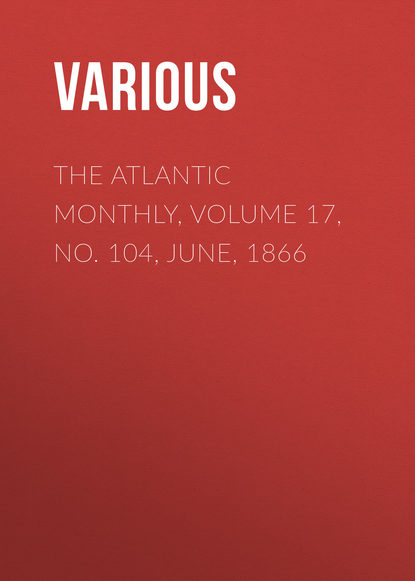По всем вопросам обращайтесь на: info@litportal.ru
(©) 2003-2024.
✖
The Atlantic Monthly, Volume 17, No. 104, June, 1866
Автор
Год написания книги
2019
Настройки чтения
Размер шрифта
Высота строк
Поля
"This sonnet on 'Sunrise,'" continued Landor, "is the noblest that ever was written:—
'I saw the Master of the Sun. He stood
High in his fiery car, himself more bright,
An archer of immeasurable might.
On his left shoulder hung his quivered load;
Spurred by his steeds, the eastern mountain glowed;
Forward his eager eye and brow of light
He bent; and while both hands that arch embowed,
Shaft after shaft pursued the flying Night,
No wings profaned that godlike form: around
His polished neck an ever-moving crowd
Of locks hung glistening; while each perfect sound
Fell from his bow-string, that th' ethereal dome
Thrilled as a dew-drop; while each passing cloud
Expanded, whitening like the ocean foam.'
"Is not this line grand?—
'Peals the strong, voluminous thunder!'
And how incomparable is the termination of this song!—
'Bright was her soul as Dian's crest
Showering on Vesta's fane its sheen:
Cold looked she as the waveless breast
Of some stone Dian at thirteen.
Men loved: but hope they deemed to be
A sweet Impossibility!'
Here are two beautiful lines from the Grecian Ode:—
'Those sinuous streams that blushing wander
Through labyrinthine oleander.'
This is like Shakespeare:—
'Yea, and the Queen of Love, as fame reports,
Was caught,—no doubt in Bacchic wreaths,—for Bacchus
Such puissance hath, that he old oaks will twine
Into true-lovers' knots, and laughing stand
Until the sun goes down.'
And an admirable passage is this, too, from the same poem,—'The Search after Proserpine':—
'Yea, and the motions of her trees and harvests
Resemble those of slaves, reluctant, cumbered,
By outward force compelled; not like our billows,
Springing elastic in impetuous joy,
Or indolently swayed.'
"There!" exclaimed Landor, closing the book, "I want you to have this. It will be none the less valuable because I have scribbled in it," he added with a smile.
"But, Mr. Landor—"
"Now don't say a word. I am an old man, and if both my legs are not in the grave, they ought to be. I cannot lay up such treasures in heaven, you know,—saving of course in my memory,—and De Vere had rather you should have it than the rats. There's a compliment for you! so put the book in your pocket."
This little volume is marked throughout by Landor with notes of admiration, and if I here transcribe a few of his favorite poems, it will be with the hope of benefiting many readers to whom De Vere is a sealed book.
"Greece never produced anything so exquisite," wrote Landor beneath the following song:—
"Give me back my heart, fair child;
To you as yet 't is worth but little.
Half beguiler, half beguiled,
Be you warned: your own is brittle.
I know it by your redd'ning cheeks,—
I know it by those two black streaks
Arching up your pearly brows
In a momentary laughter,
Stretched in long and dark repose
With a sigh the moment after.
"'Hid it! dropt it on the moors!
Lost it, and you cannot find it,'—
My own heart I want, not yours:
You have bound and must unbind it.
Set it free then from your net,
We will love, sweet,—but not yet!
Fling it from you:—we are strong;
Love is trouble, love is folly:
Love, that makes an old heart young,
Makes a young heart melancholy."
And for this Landor claimed that it was "finer than the best in Horace":—
"Slanting both hands against her forehead,
On me she levelled her bright eyes.
My whole heart brightened as the sea
When midnight clouds part suddenly:—
Through all my spirit went the lustre,
Like starlight poured through purple skies.
"And then she sang a loud, sweet music;
Yet louder as aloft it clomb:
Soft when her curving lips it left;
Then rising till the heavens were cleft,
As though each strain, on high expanding,
Were echoed in a silver dome.











